Top 7 Burkinabe Culture, Customs, and Etiquette
Burkina Faso is a landlocked country in western Africa. But Burkina Faso always reminds people of unique cultures and customs that only Burkina Faso has. As a ... read more...country with nearly 60 different ethnic groups, Burkina Faso is sure to always be interesting when you explore its culture. Here's your guide to Burkinabe Culture, Customs, and Etiquette before you visit it.
-
Before visiting Burkina Faso, it's a good idea to familiarize yourself with some of the language, culture, and manners of the people here. The most typical way for guys to welcome other men is to shake hands with the right hand. When people are buddies, handshakes are frequently accompanied by a snap on the release. A simple proper handshake is all that is required when a woman greets another woman.
When men greet women, a handshake with the right hand is the most common form of greeting. It is also permissible to greet someone verbally or with a nod of acknowledgment. Especially, on holidays, there’s usually a handshake accompanied by head taps – touching the sides of your head to another person’s 4 times, 2 on each side. A respectful handshake is given with the right hand while the left hand holds the right elbow for youngsters to elders or lower-class to upper-class individuals.
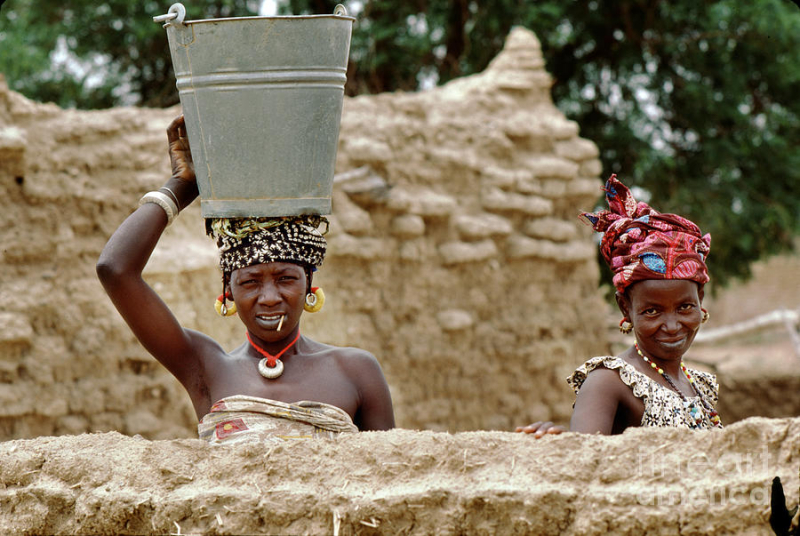
fineartamerica.com 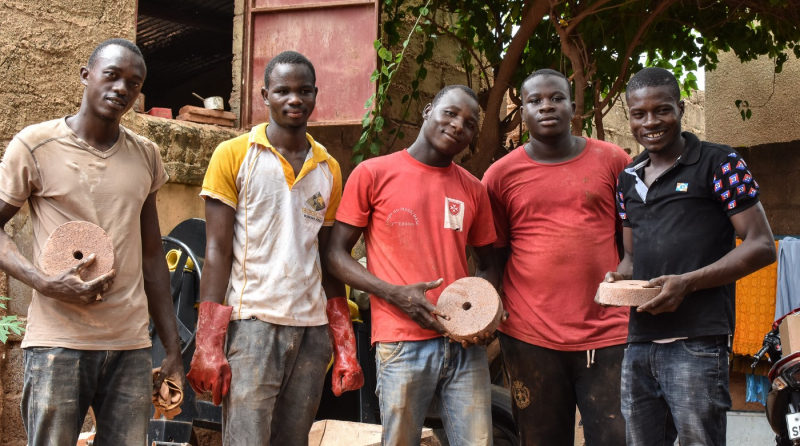
pnudfr.medium.com -
Marriage is definitely one of Burkinabe culture, customs, and etiquette that may interest you. In previous years, arranged marriages were the norm but this has become rare nowadays, more so in urban settings. In a traditional marriage, the husband is required to give the wife's family a bride price. The amount paid is different from one ethnic group to the other with regard to substantial and symbolic contributions and it may take a long time to acquire. Interethnic marriages are typically discouraged by differences in bride prices, yet they are nonetheless common in some nearby areas. After marriage, women are expected to join their husbands. This forms a coalition between the two families.
In Burkina Faso, the rate of divorce is quite high. People can divorce, the children are expected to stay with the father’s family, and when the woman remarries, the bride price is given to the previous husband’s family. After a husband passes away, the widow gets married off to one of her husband's brothers. Besides, Burkina Faso also has child marriages, 52% of girls are married before the age of 18 years, and 10% are married before they turn 15.
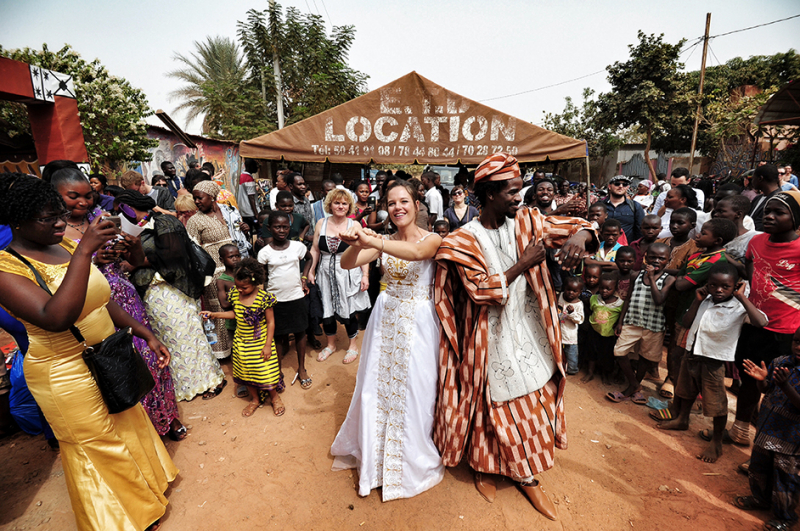
photoawards.com 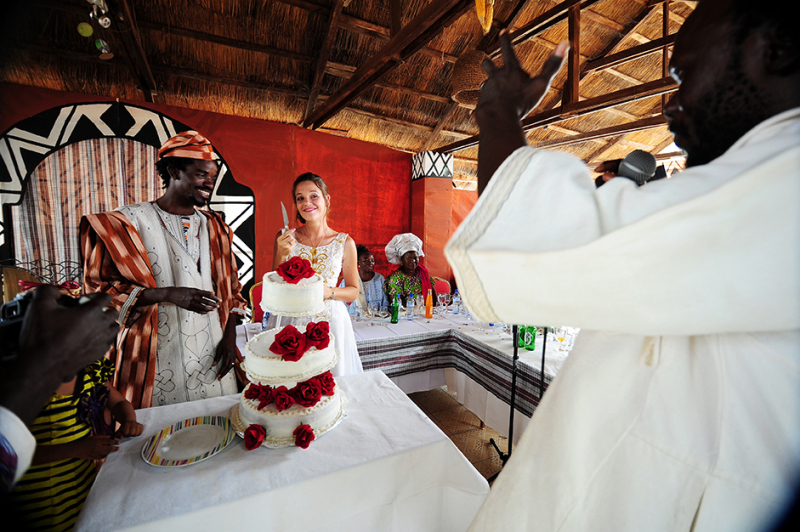
photoawards.com -
Wall painting is the tradition that gives women collective pride and self-esteem manifested in the process of bambolse, a term used exclusively to describe embellishment or decoration to add aesthetics to wall decoration. Geometric patterns and symbols of people and animals cover these walls. You can see crocodiles and snakes wind their way across the walls. The creatures swim in a sea of stars, moons, geometric designs, etc. The town of Tiébélé in Burkina Faso is a living example of traditional art and architecture. The Kassena have kept the beautiful artistic style of their ancestors alive in their unique royal court – making Tiébélé a ‘must-see’ for anyone visiting Burkina Faso.
Although this society is polyamorous, this tradition gives women a chance to showcase their individuality while serving as social interaction and a way to please their husbands. The women say that this art form is a part of their life in the same way that eating or sleeping is incorporated.
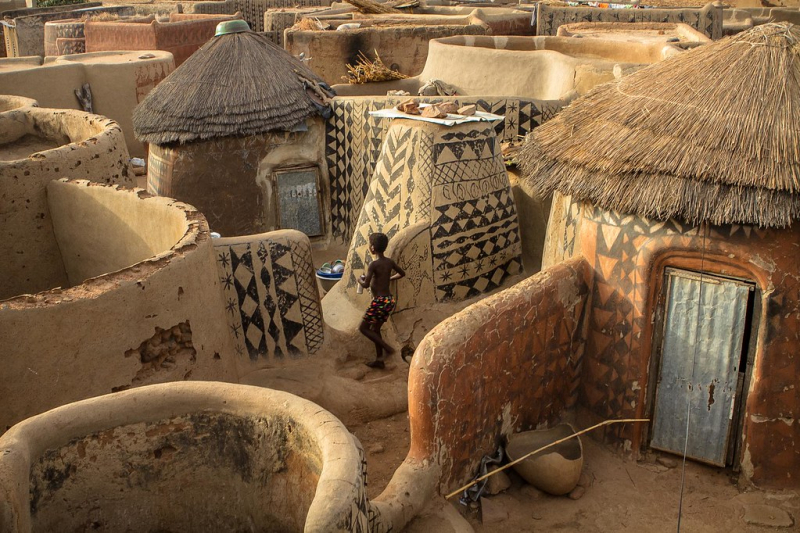
flickr.com 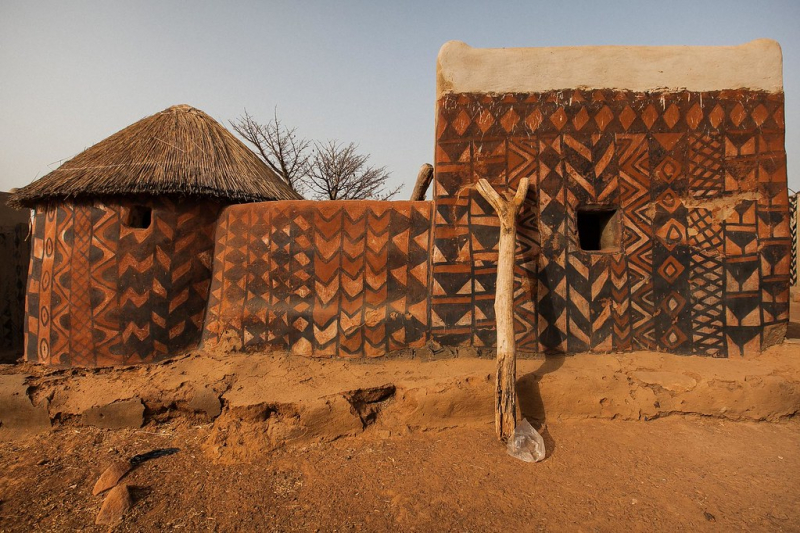
flickr.com -
Masks occupy an important position in the religious life of Burkina Faso, so the mask is one of the Burkinabe culture, customs, and etiquette that you should know. The Nakomse (chief class) do not use masks. All the Voltaic or Gur-speaking peoples, including the Nyonyose, Lela, Winiama, Nouna, Bwaba, and Dogon, frequently employ masks at initiations and funerals. Masks show up at funerals to ensure that the right burial rituals were followed on behalf of the deceased. They then appear at several funerals or memorial services held at regular intervals over the years after an elder has died.
Masks are present to pay respect to the deceased and to confirm that their spirit deserves entry into the world of their ancestors. If there isn't a proper funeral, the ghost hangs around the house and bothers the descendants. Masks are frequently carved from Ceiba pentandra, or imitation kapokier, wood. They are carved in three distinct designs that are reminiscent of the ancient people who were subjugated by the Nakomse invaders in 1500 and assimilated into the new Mossi civilization.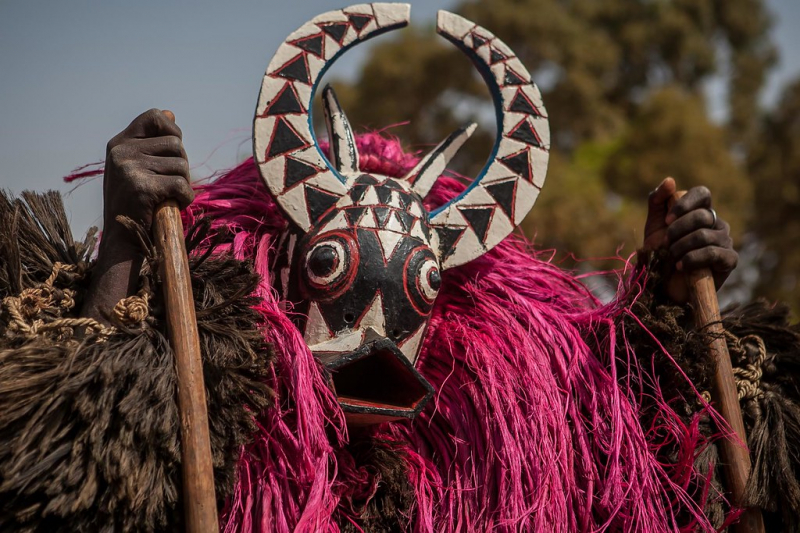
flickr.com 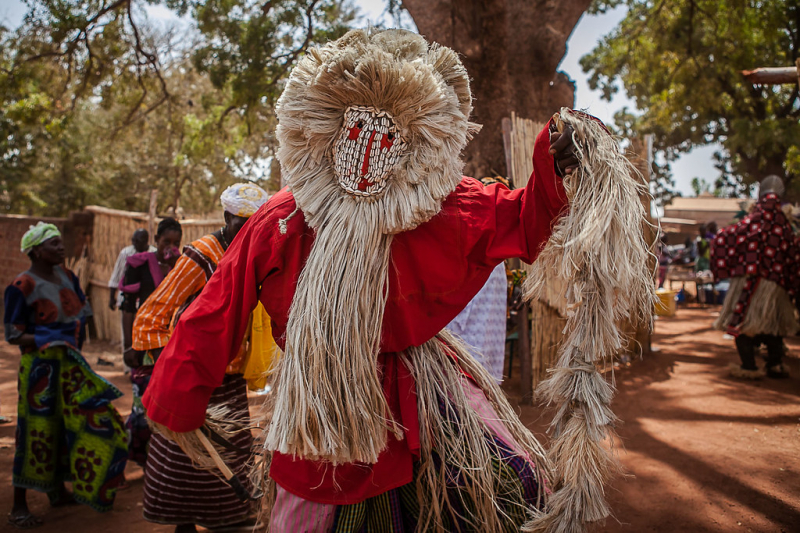
flickr.com -
One of the Burkinabe culture, customs, and etiquette is Rakiire (cross-ethnic joking). Rakiire is a thousand-year-old custom. No one can say when exactly it started; however, cross-ethnic joking is considered a dynamic, evolutionary practice. Rakiire has 2 types, one exists within the same family and the other is the cross-ethnic joking relationship. Rakiire within a big family evolves as marital relations are formed and children are brought into the world. Rakiire insults never lead to a brawl.
When a person starts “insulting” the parents of someone else, he can only insult the father. The mother is not insulted because generally, she is from another ethnic group. The purpose of these joke “insults” is to allow people to have fun and remember the pact of nonaggression and assistance that exists between their ethnic groups. Besides, people can learn how to have a culture of tolerance and accept others just as they are. Thus, various social groups learn how to live together. In case of conflict, it is possible to actually use Rakiire to defuse the conflict. In fact, Rakiire can be connected with the freedom of speech. One is free to voice what he thinks without being worried.
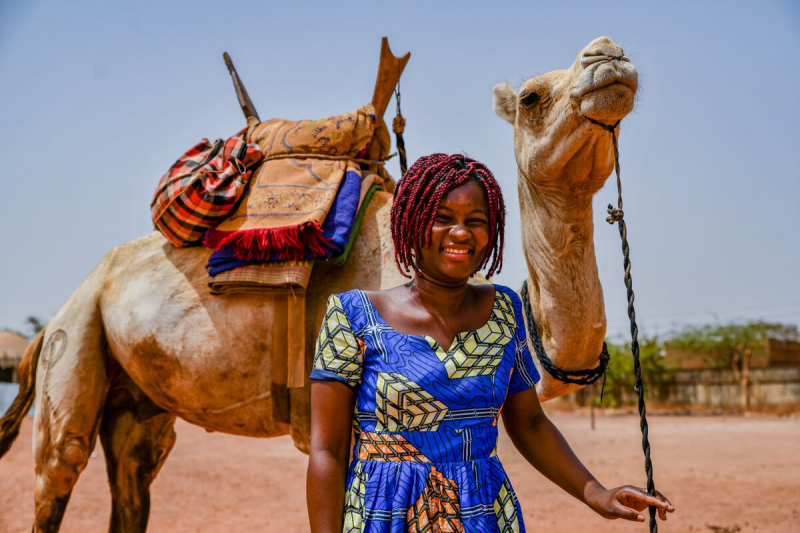
compassionuk.org 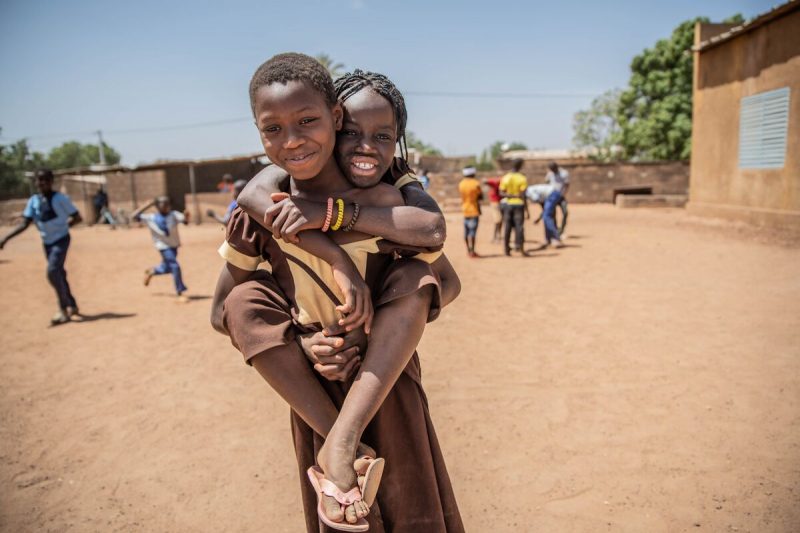
compassionuk.org -
In Burkina Faso, when a leader dies, the griot or storyteller passes on oral traditions. He accompanies himself with the tam tam, a percussion instrument. He passes through the village, announcing the death of a leader. People follow him to the funeral. The special thing is blacksmiths in Burkina Faso have a strong influence and a lot of power because kings trusted them to make good weapons. Blacksmiths, therefore, also function as mediators and perform important roles in funeral rituals. Their wives will prepare the funeral beer over fires.
In the world of the dead, an inverted life develops, according to tradition in Burkina Faso. The dead experience day as the living experience night, and so forth. Often the dead refuse to leave the world. So to ease the pain of the dead, the living will speak to the dead through a ritual called evocation. And in Burkina Faso, music is an important part of funeral rituals. The tam tam, or percussion instrument will transmit the joy to the dead person, and dancers dance to the music of the tam tams.
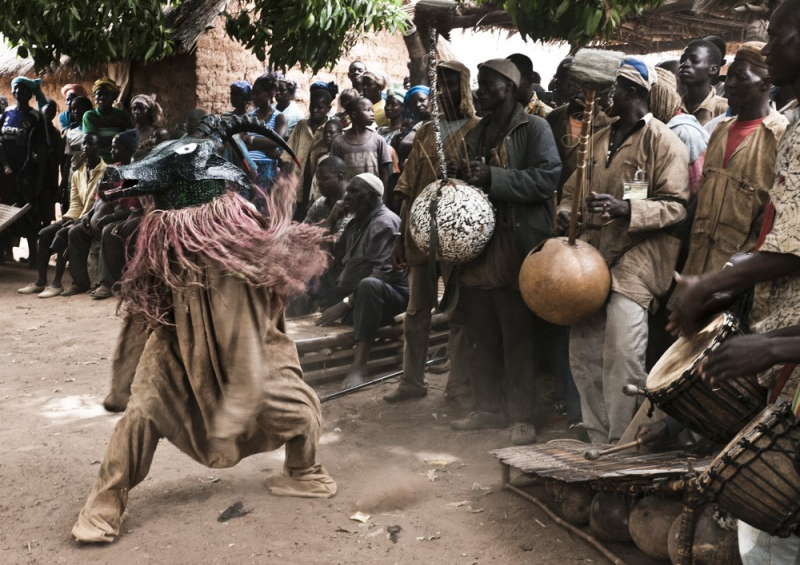
toucan-photo.com 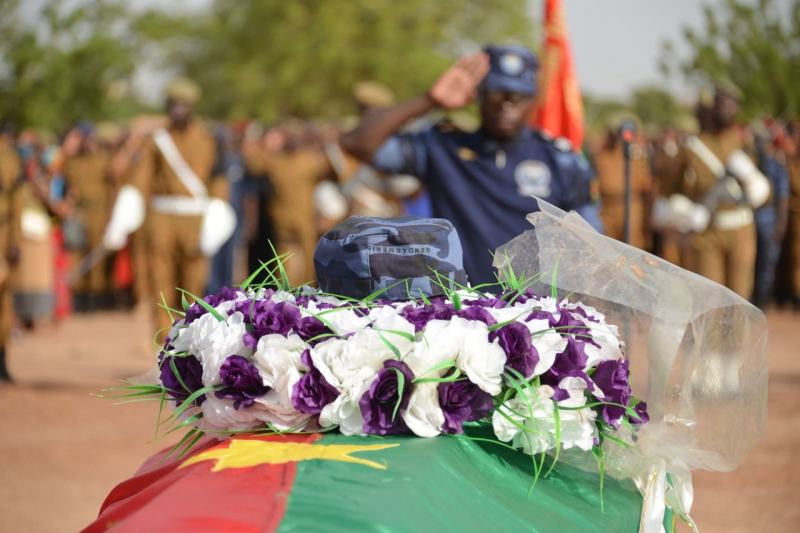
ifex.org -
Furthermore, the animal sacrifice ritual is also among the Burkinabe culture, customs, and etiquette that will interest you. And referring to the animal sacrifice ritual in Burkina Faso, it is impossible not to mention Dafra - a famous and important sacrifice site with feeding chickens to the fish. Dafra is a sacrificial site near Bobo-Dioulasso, Burkina Faso's second-largest and predominantly Muslim city. Dafra lies at the source of the river Houet and is situated in a gorge. Dafra is inhabited by live catfish, which are considered the tutelary spirits of Bobo-Dioulasso. Ritual practice at the site includes killing chickens and feeding their intestines to the fish. If a wish comes true, a sacrifice of an animal must be offered as an expression of gratitude.
Dafra is known as a powerful location where desires made and affirmed by vows will be granted. People travel to Dafra for treatment for ailments, infertility, financial hardship, failure in business or school, nightmares, and so on. Therefore, from all around Burkina Faso, its neighbors, and even from as far away as Europe or the US, people pilgrimage to Dafra.

youngpioneertours.com 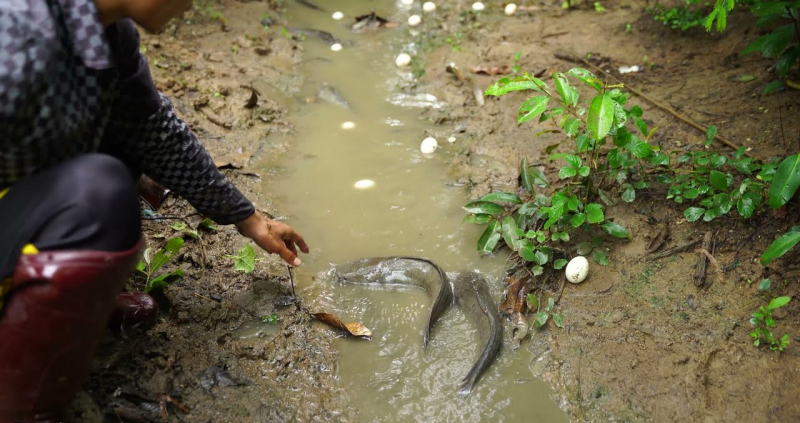
apimagesblog.com




























